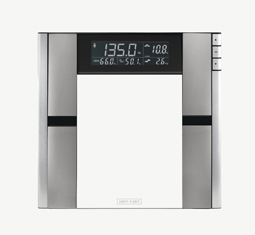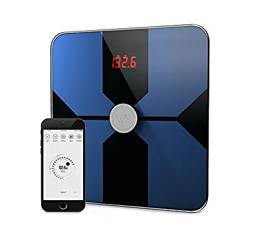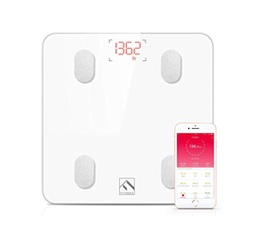Figure Out Whether You’re Dehydrated in Seconds by Stepping on a Super-Smart Scale
But not just any scale. New fancypants smart scales can measure your body water percentage (BWP) by sending a harmless electric current through the body (a process called bioelectric impedance analysis). Because electricity travels faster through water than solid mass (AKA your organs, bones, muscles, all that fun stuff), the scale can use the amount of resistance encountered by the electric current to calculate your BWP.
Once your BWP pops up on the screen, how will you know whether that means you need to reach for your S'well, stat? According to Albert Ahn, MD, an internal medicine doctor at NYU Langone, your particular BWP needs will vary depending on your age, gender, and body composition (you can use a handy online calculator to help you determine yours). Generally though, a woman's percentage should fall between 45-50 percent, while a man's should be between 50-65 percent. "Those who are very athletic and active should have an additional 5 percent of body water percentage," adds Dr. Ahn.
If weighing yourself on the reg might doesn't sound like a healthy lifestyle decision for you, Dr. Ahn says, "In general, the most common way that we are able to regulate our body water percentage is through our thirst reflex," he says. The body is pretty good at letting you know what it needs—you just need to pay attention.
{{post.sponsorText}}
If you dig the idea of having a scale do all the work, check out three models below that are designed to give you a hydration checkup in seconds.
Shop Smart Scales
While we're talking hydration FAQs: Here's how the temperature of your water affects your digestion. Plus, how to store your accidental water bottle collection. Not to mention, more info on what causes dehydration.
Loading More Posts...


